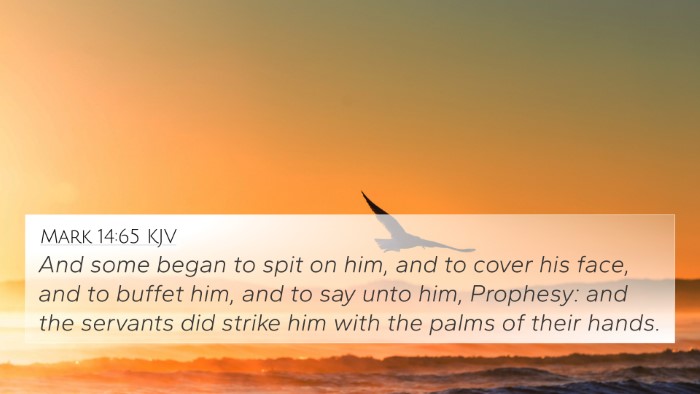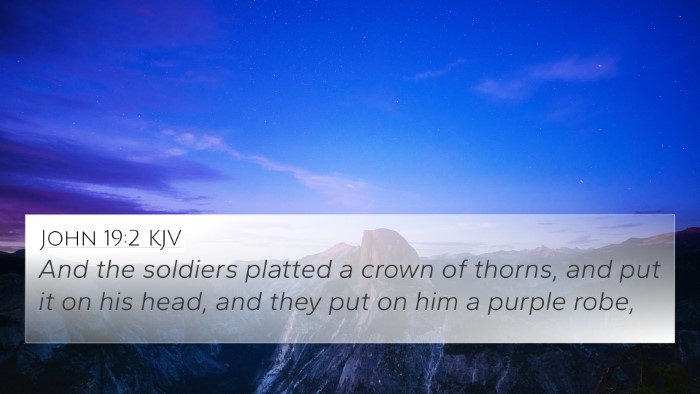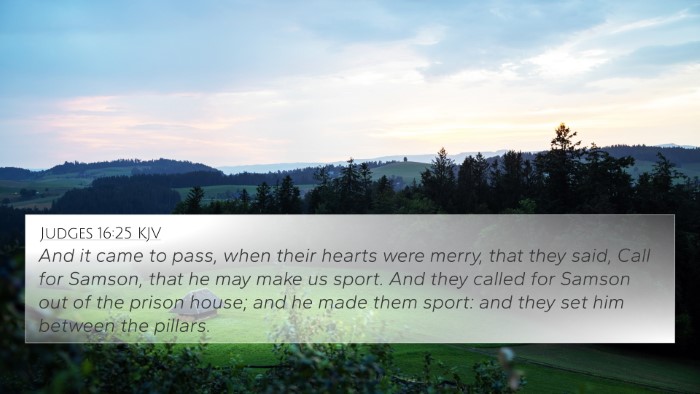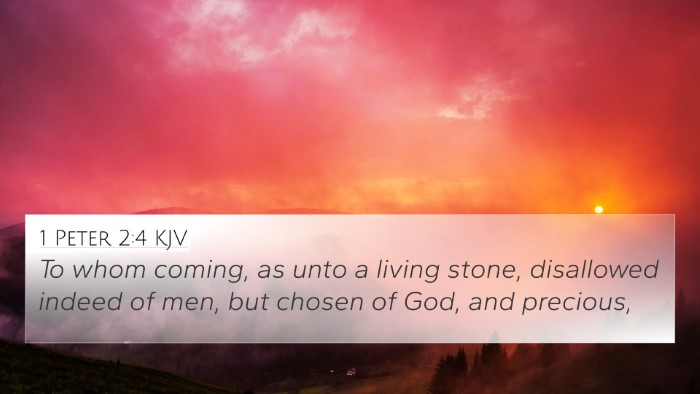Understanding Matthew 26:68
Verse: "Saying, Prophesy unto us, thou Christ, Who is he that smote thee?" (Matthew 26:68)
Overview of the Verse
This verse occurs during the trial of Jesus before the Sanhedrin, where He is mocked and challenged by those who accuse Him. The mocking tone of the question "Who is he that smote thee?" highlights the scorn that Jesus faced as the Messiah.
Commentary Insights
The following insights summarize the interpretations from public domain commentaries:
-
Matthew Henry:
Henry emphasizes the derision of the religious leaders. The verse illustrates human scorn against divine authority, where the mockers, while asking for a prophetic revelation, display their ignorance of the true identity of the Messiah.
-
Albert Barnes:
Barnes points out the irony of the request for prophecy from the one who is the fulfillment of all prophecies. The mocking challenge underscores the tension between Jesus’ kingship and the worldview of His accusers.
-
Adam Clarke:
Clarke reflects on the contempt shown towards Jesus. The request indicates a lack of understanding of prophetic authority, and it serves as a witness to the broader rejection of Jesus as the Messiah.
Thematic Bible Verse Connections
The mocking of Jesus in Matthew 26:68 can be linked to various themes throughout the Bible:
-
Psalm 22:7-8: "All they that see me laugh me to scorn: they shoot out the lip, they shake the head, saying, He trusted on the Lord that he would deliver him: let him deliver him, seeing he delighted in him."
-
Isaiah 53:3: "He is despised and rejected of men; a man of sorrows, and acquainted with grief: and we hid as it were our faces from him; he was despised, and we esteemed him not."
-
Luke 22:64: "And when they had blinded their eyes, they struck him on the face, and asked him, saying, Prophesy, who is it that smote thee?"
-
John 1:10-11: "He was in the world, and the world was made by him, and the world knew him not. He came unto his own, and his own received him not."
-
Matthew 27:29: "And when they had plaited a crown of thorns, they put it upon his head, and a reed in his right hand: and they bowed the knee before him, and mocked him, saying, Hail, King of the Jews!"
-
Mark 15:18: "And began to salute him, Hail, King of the Jews!"
-
1 Peter 2:23: "Who, when he was reviled, reviled not again; when he suffered, he threatened not; but committed himself to him that judgeth righteously."
Connections Between Bible Verses
By examining Matthew 26:68 in the context of similar verses, we uncover deeper layers of meaning:
- Inter-Biblical dialogue: The verse connects well with the Old Testament prophecies that foretell the kind of mocking the Messiah would endure, seen in the Psalms and Isaiah.
- Linking Bible scriptures: Matthew’s account of the mockery is paralleled in the other gospels, suggesting a consistent theme of rejection faced by Jesus throughout His ministry.
- Comparative Bible verse analysis: The interactions during this trial reflect a pivotal moment where humanity's fallen nature confronts divine redemption embodied in Christ.
How to Use Bible Cross-References
When studying Matthew 26:68, the practice of cross-referencing allows for a more comprehensive understanding of themes such as:
- Messiah’s Suffering: How the prophecies from the Old Testament point towards the New Testament fulfillment in Jesus.
- Mockery and Rejection: Highlighting the responses to Jesus throughout His trials, can give insights into human nature and divine grace.
- Prophetic Fulfillment: Noting how Jesus embodies numerous prophecies and the implications of that on Christian faith.
Conclusion
Matthew 26:68 serves as a poignant reminder of the scorn and rejection Jesus faced during His earthly ministry. By understanding the connections between this verse and others, we can appreciate the consistency of Biblical themes that outline the narrative of redemption. Utilizing tools for Bible cross-referencing enriches our study and deepens our spiritual insight into the scripture.












